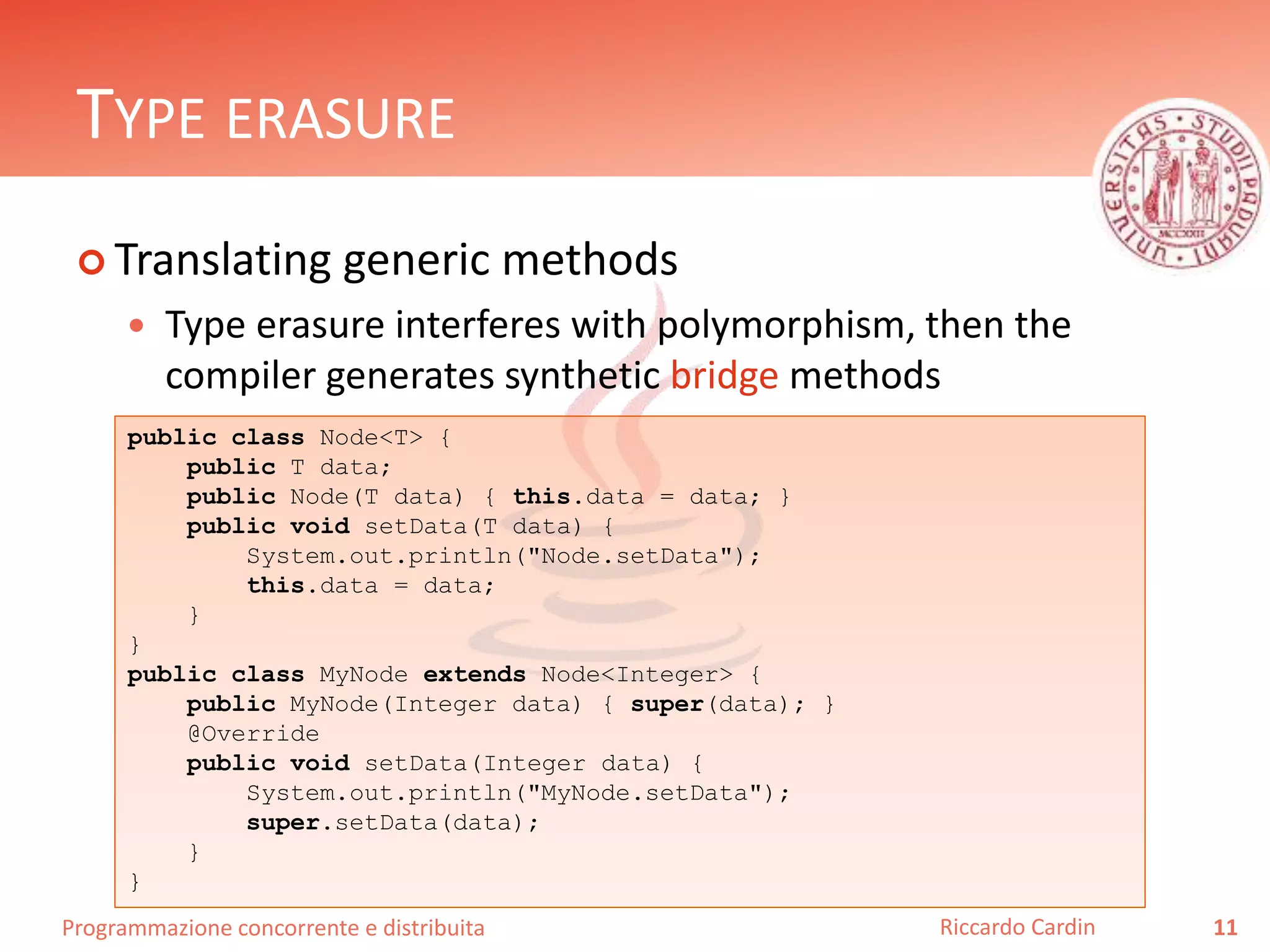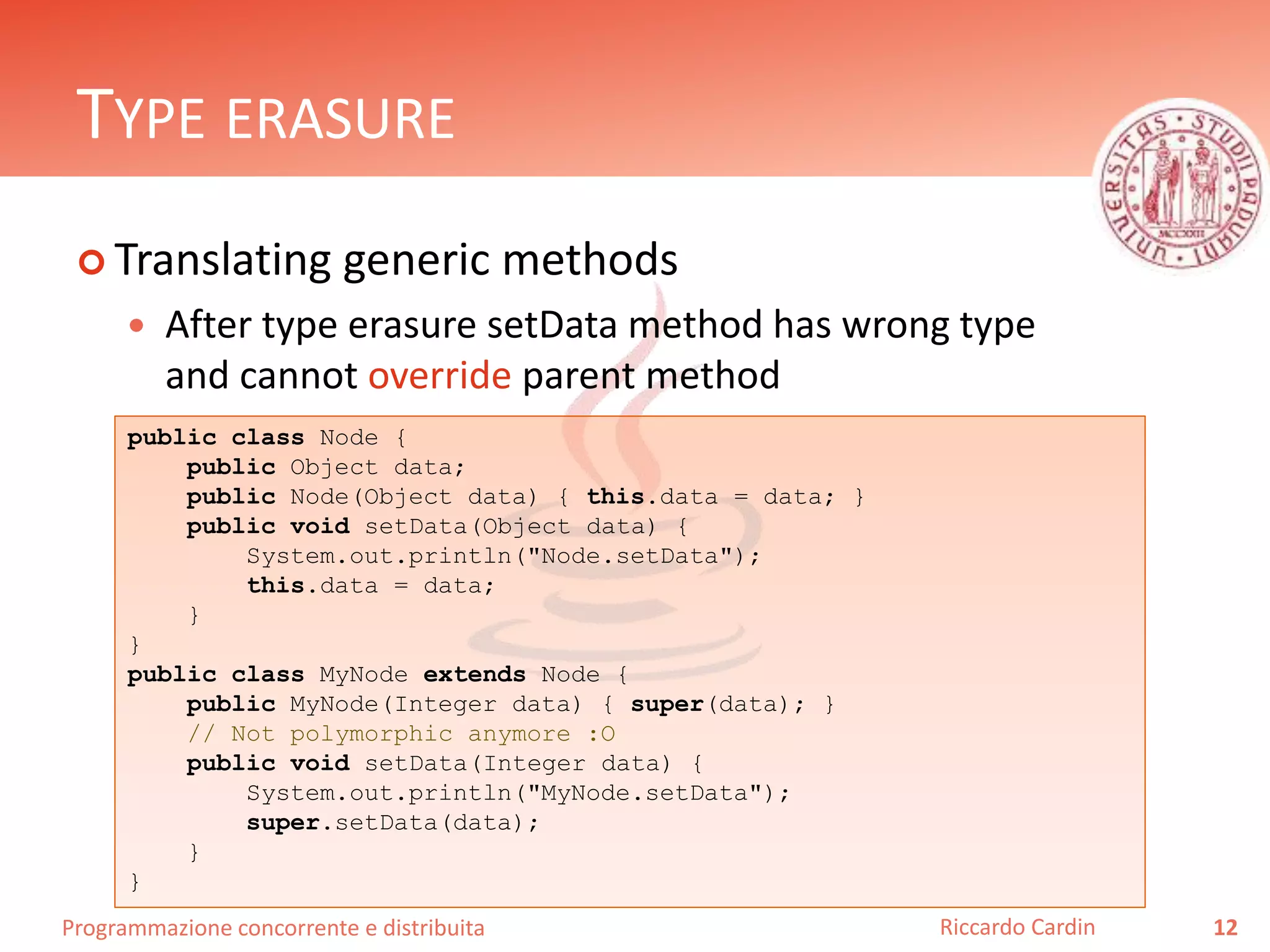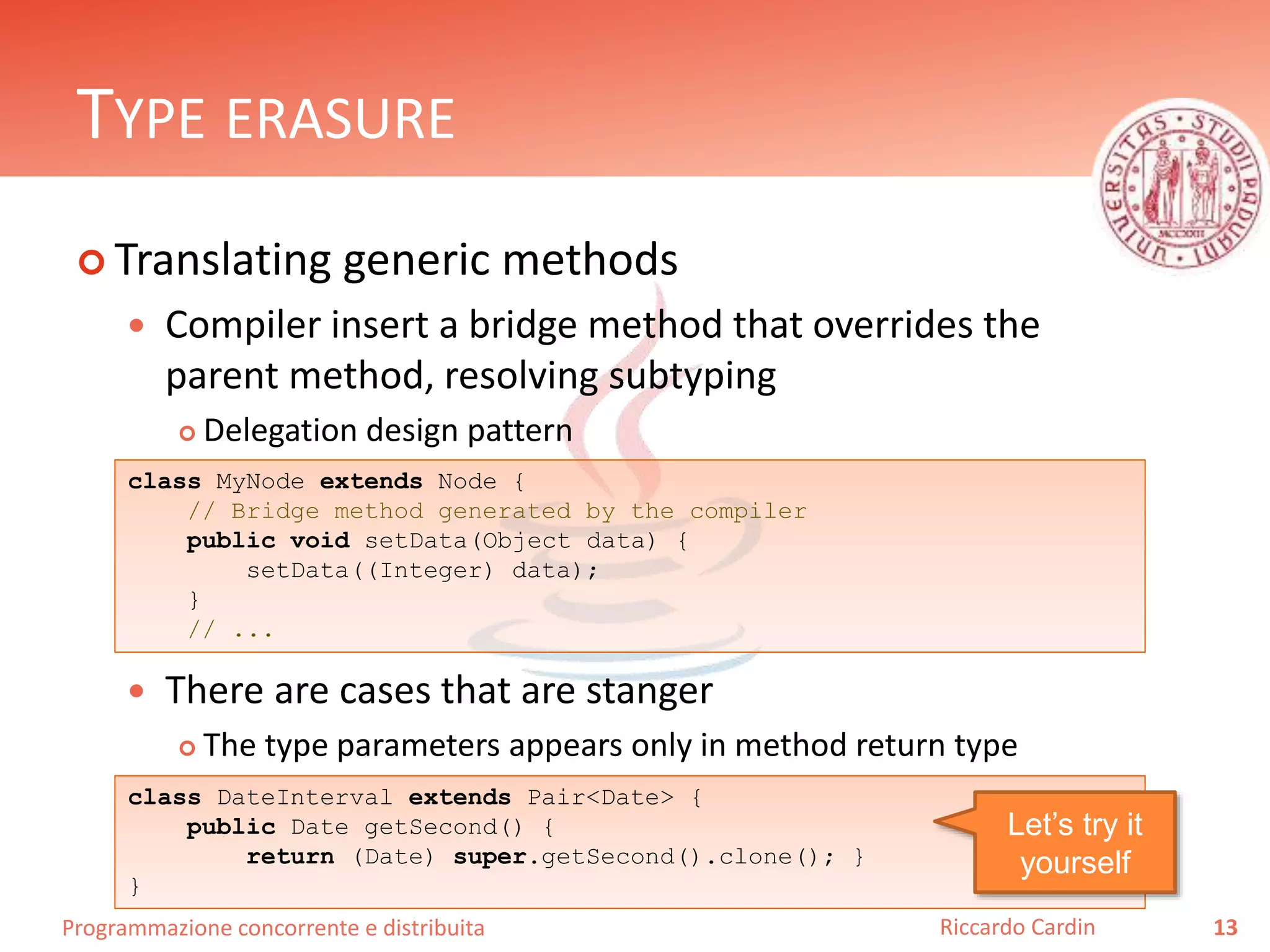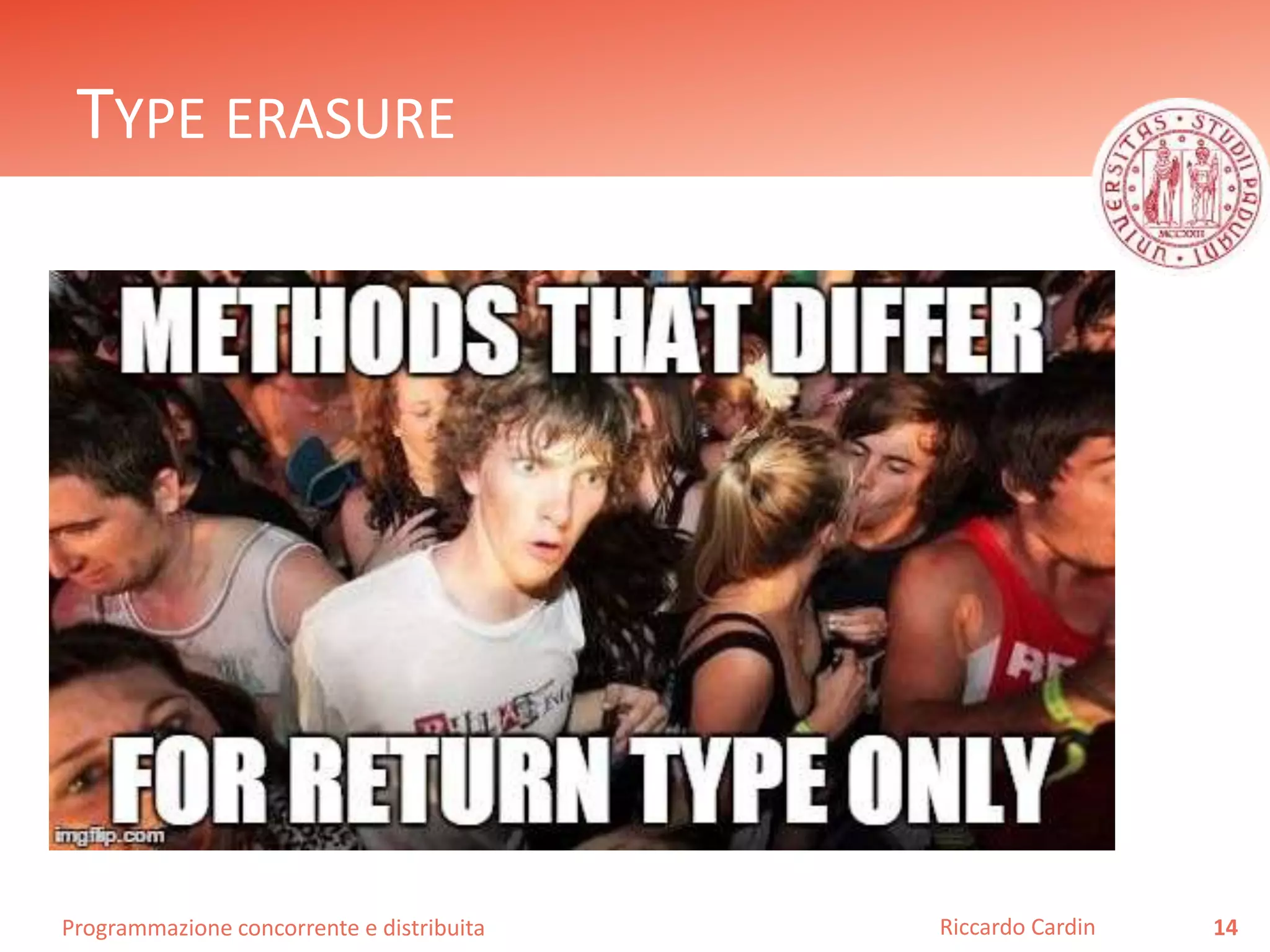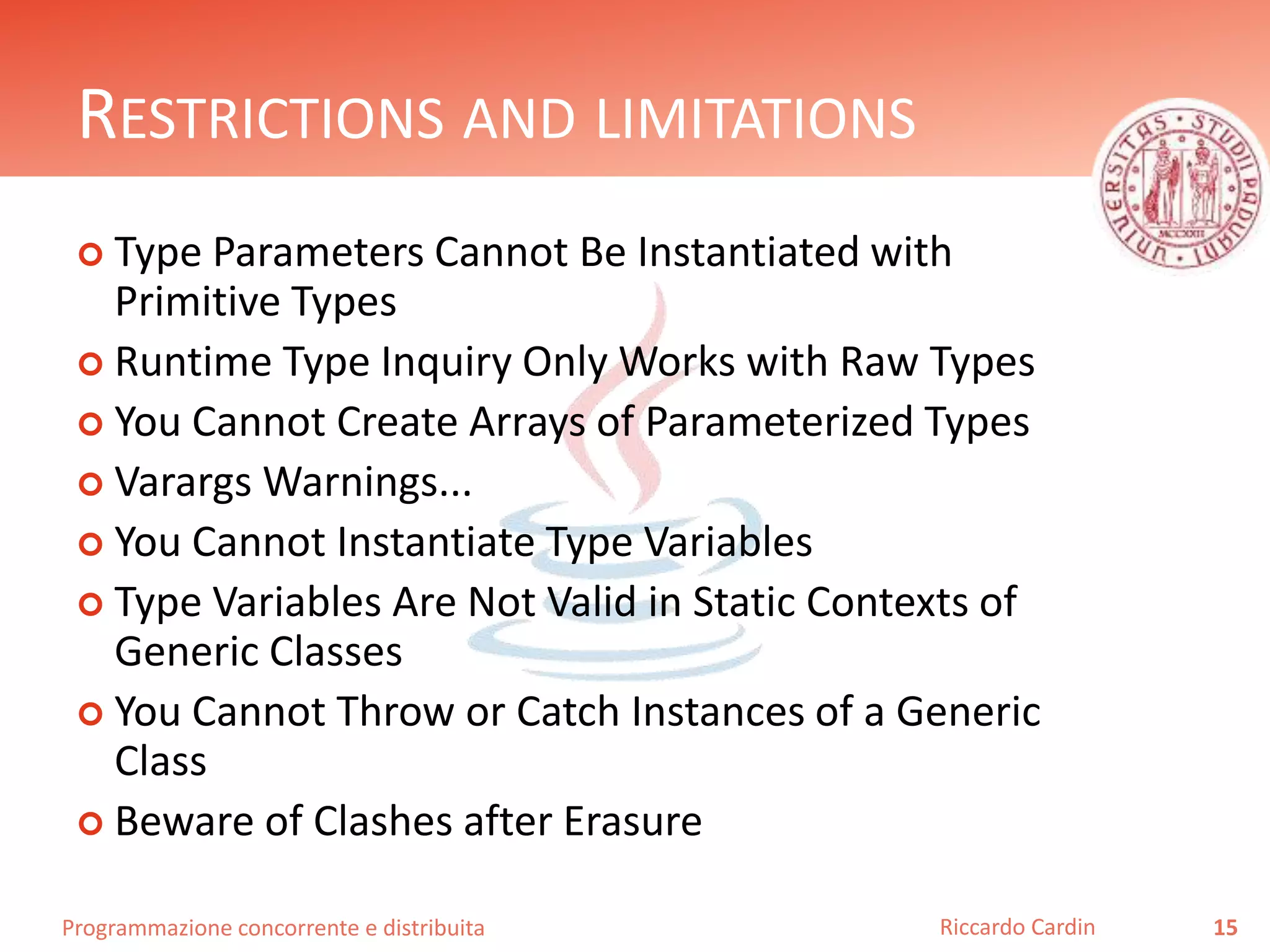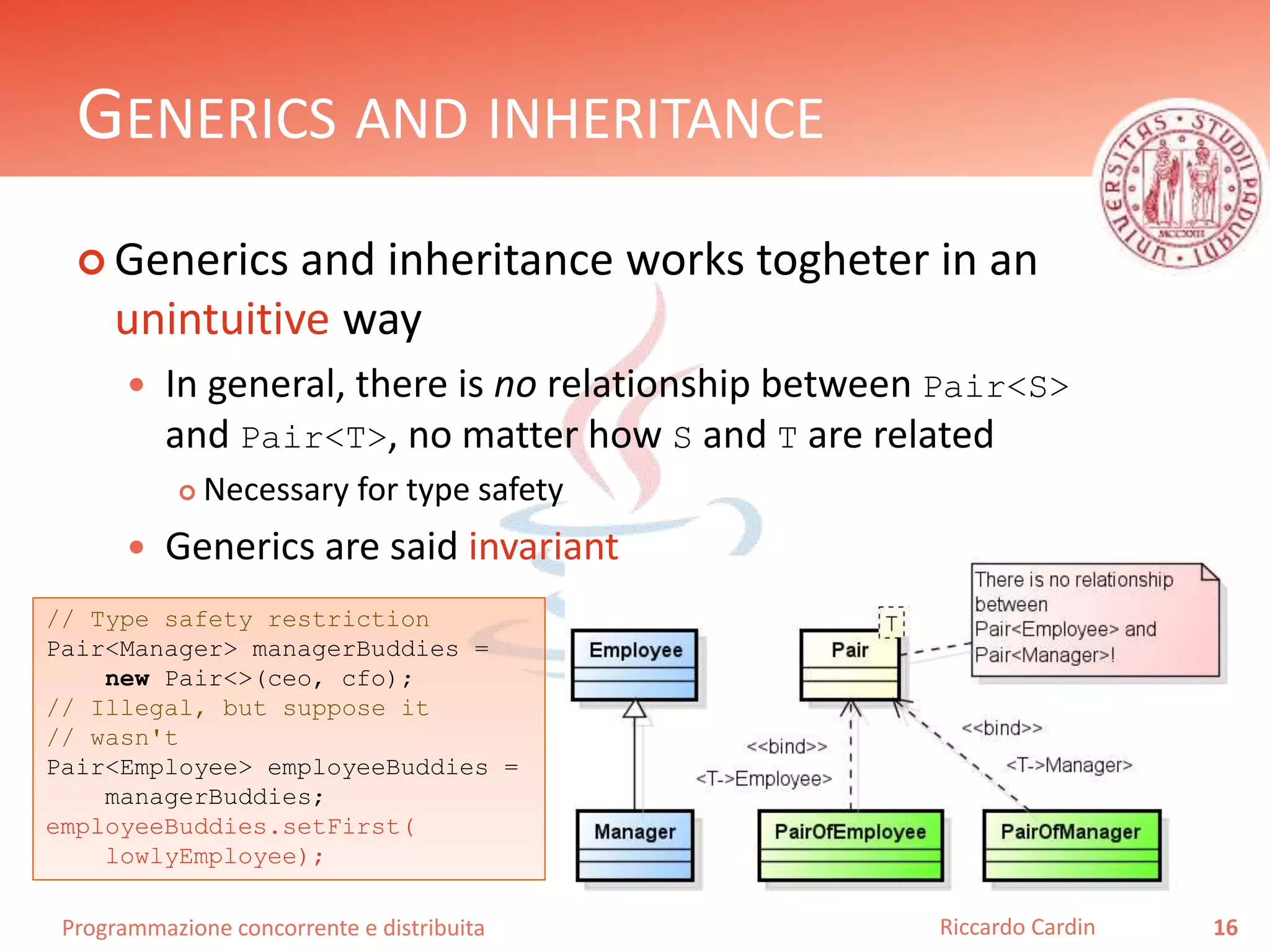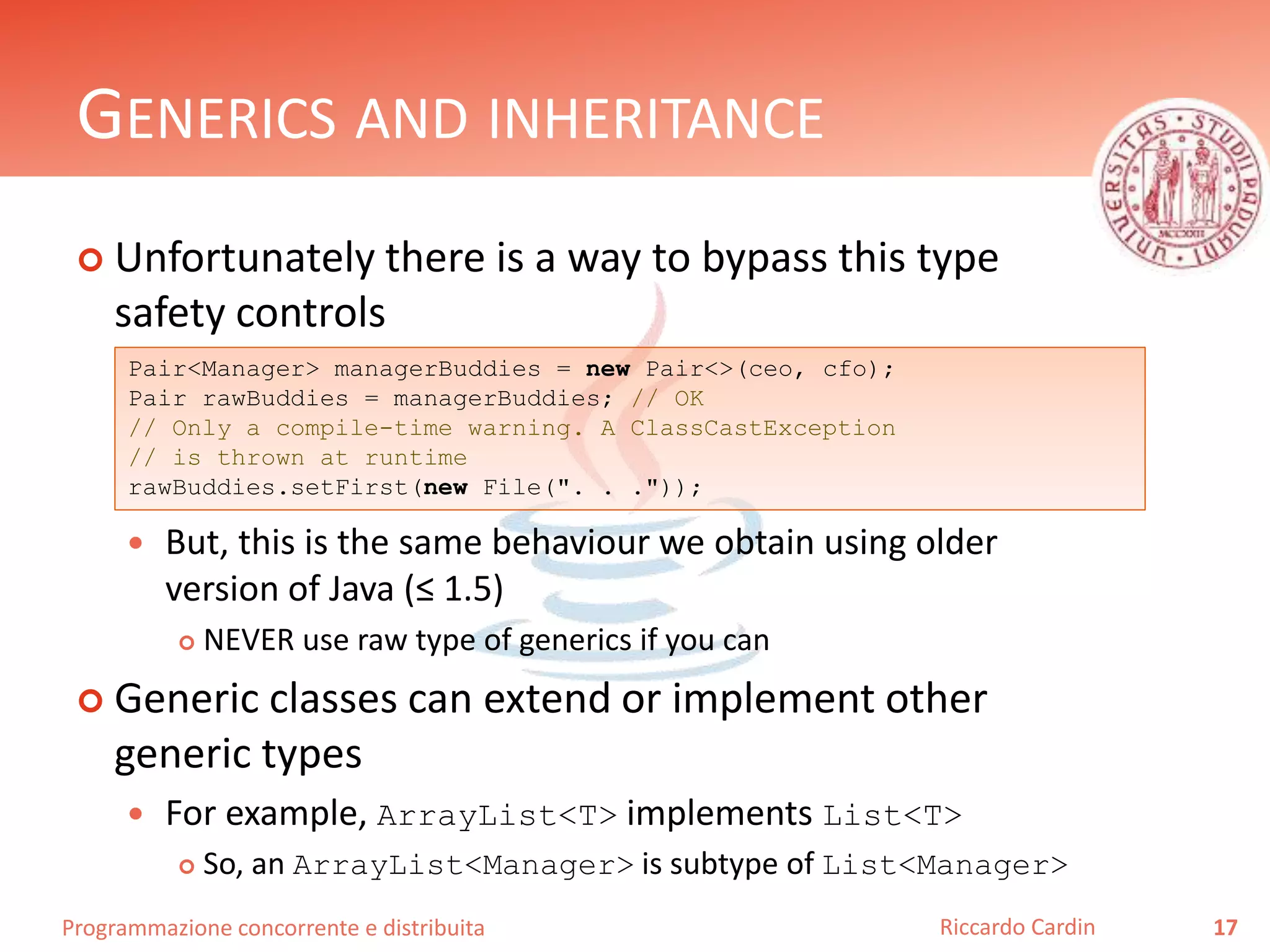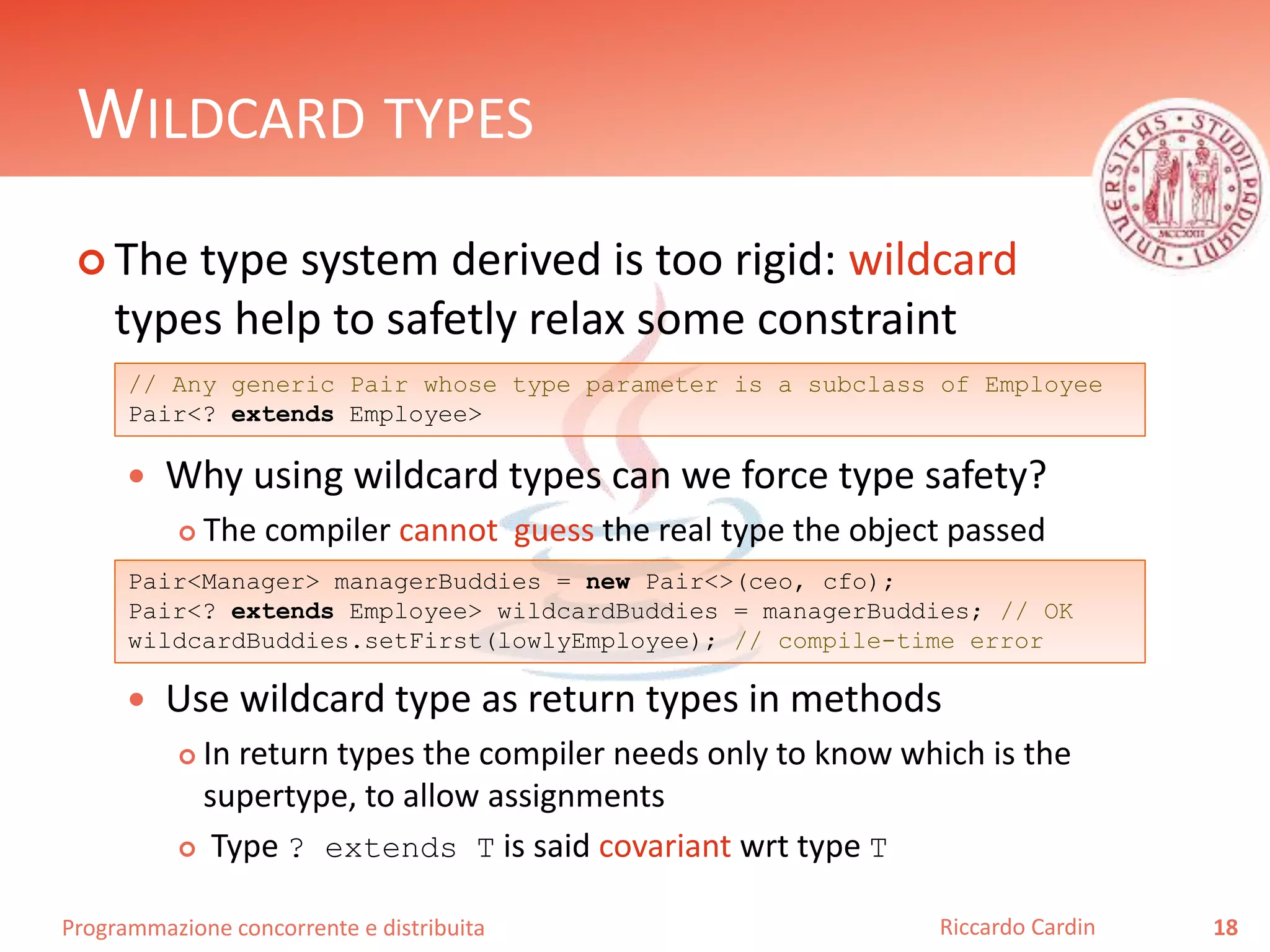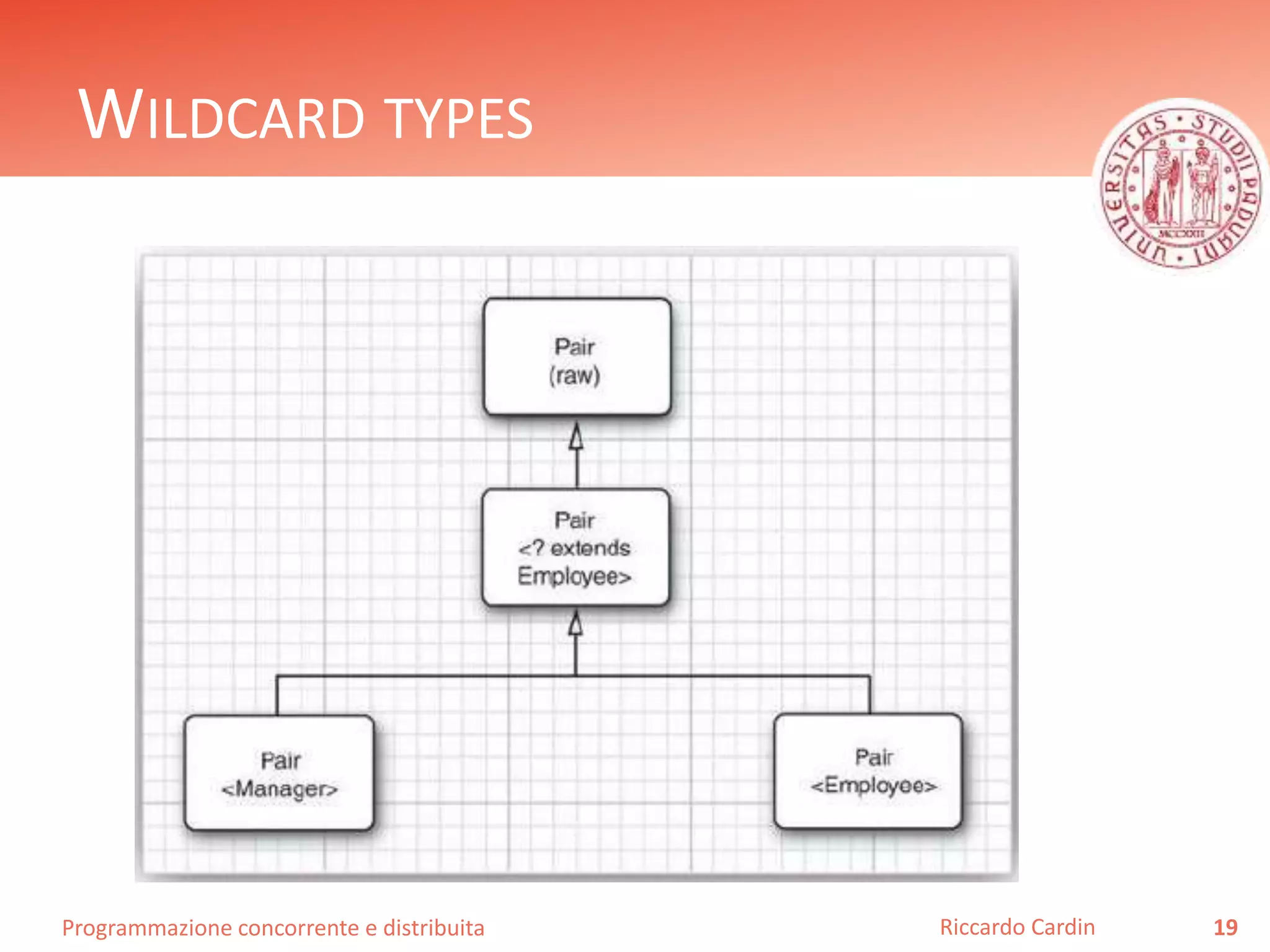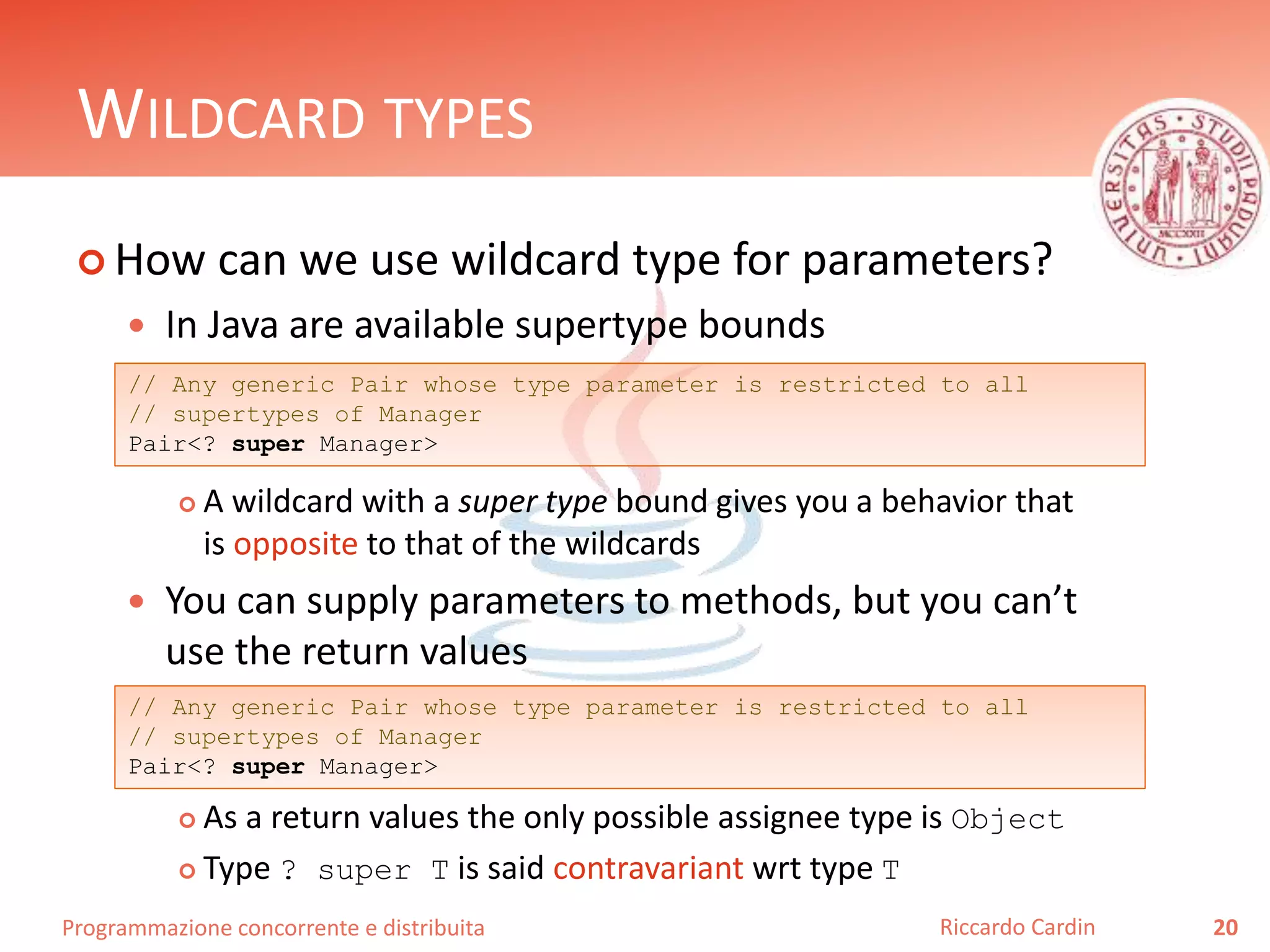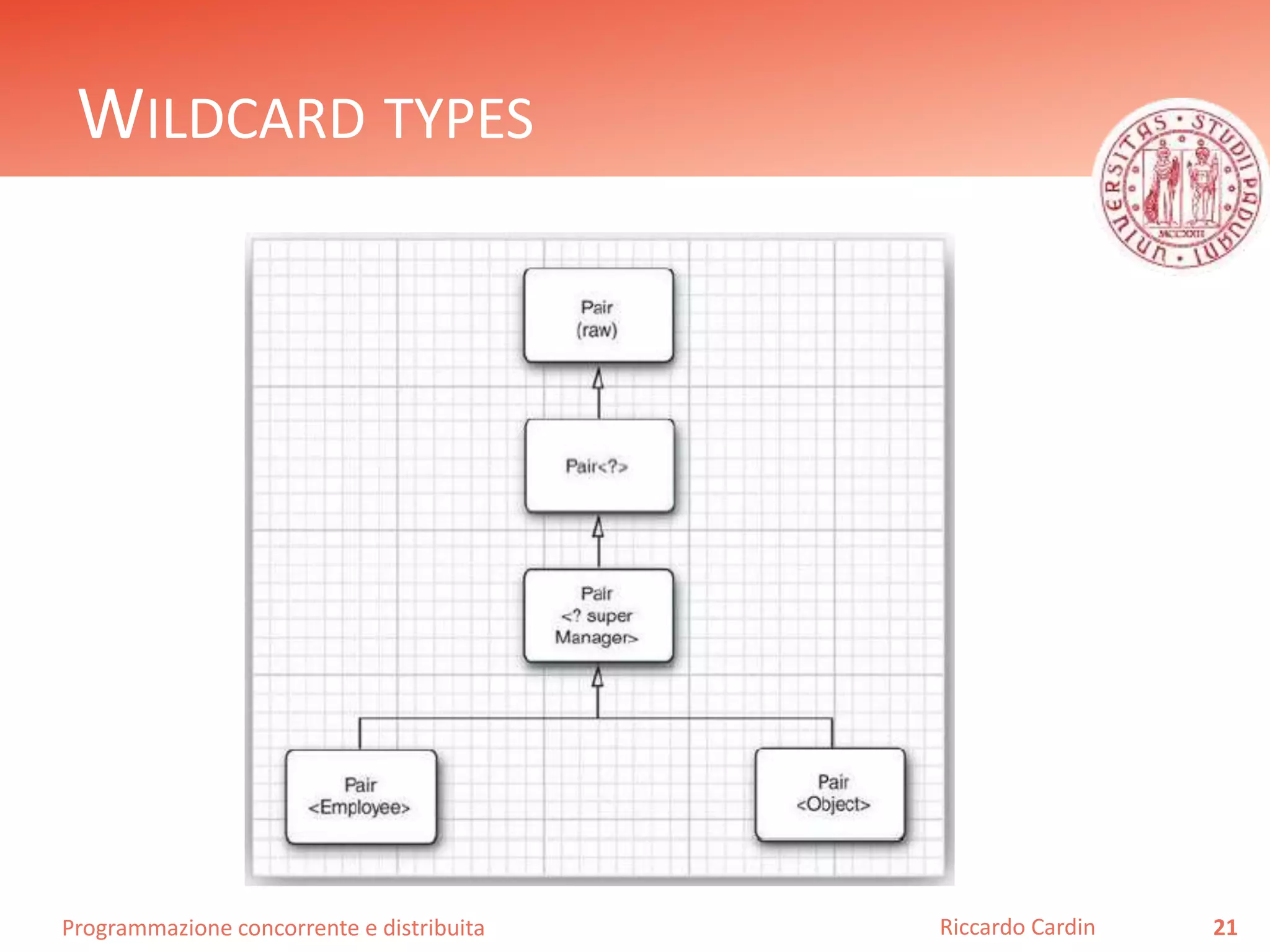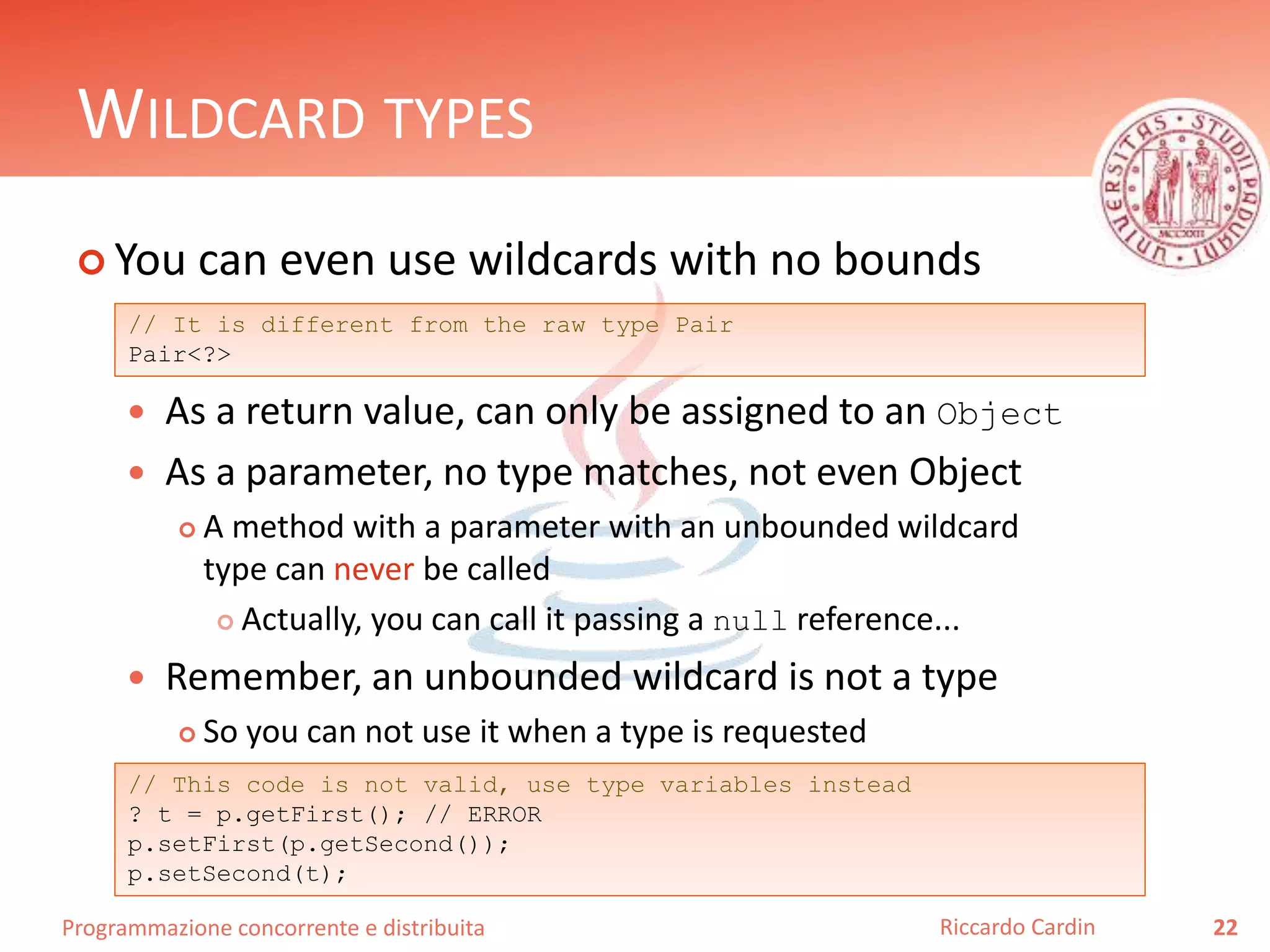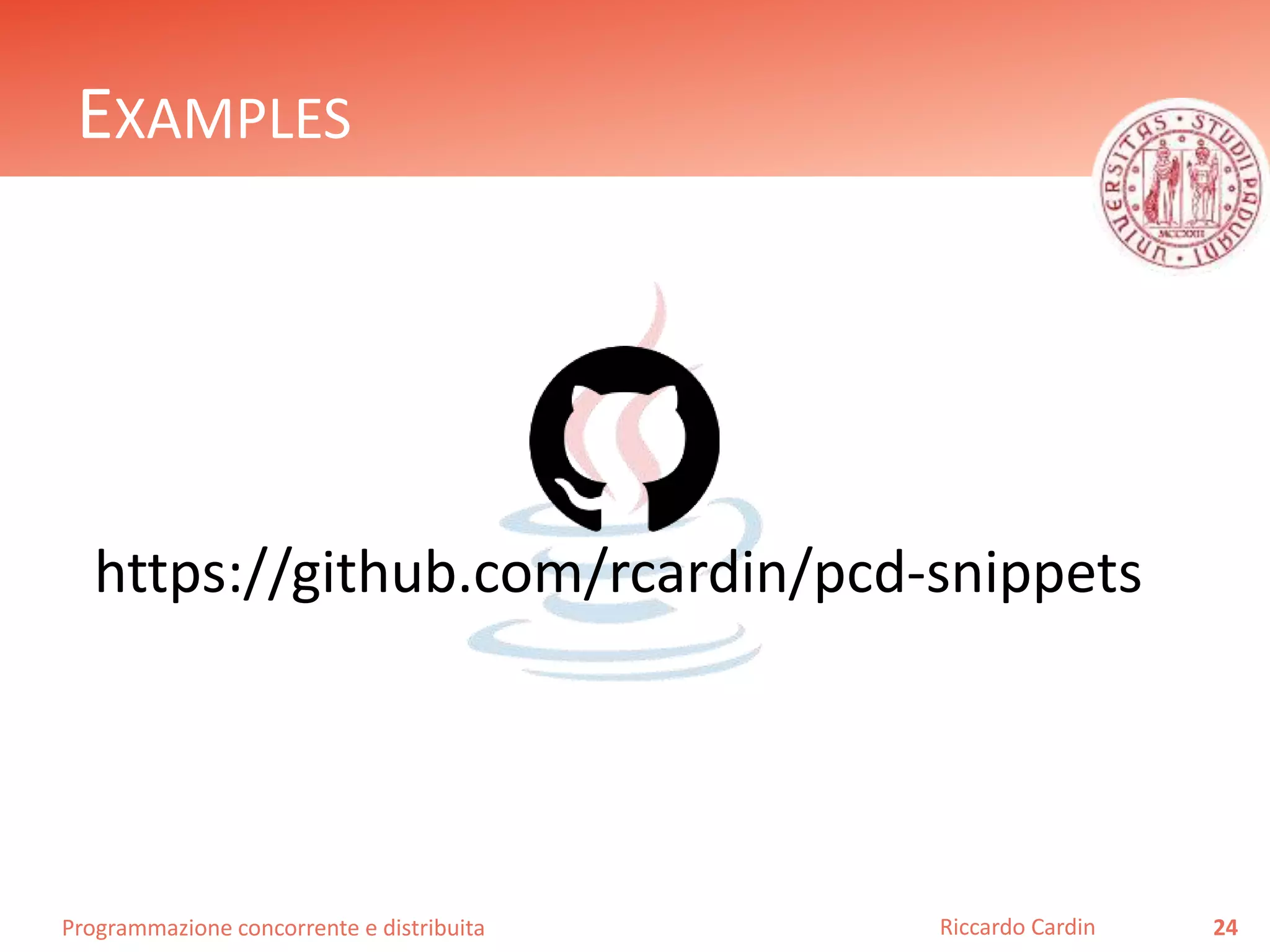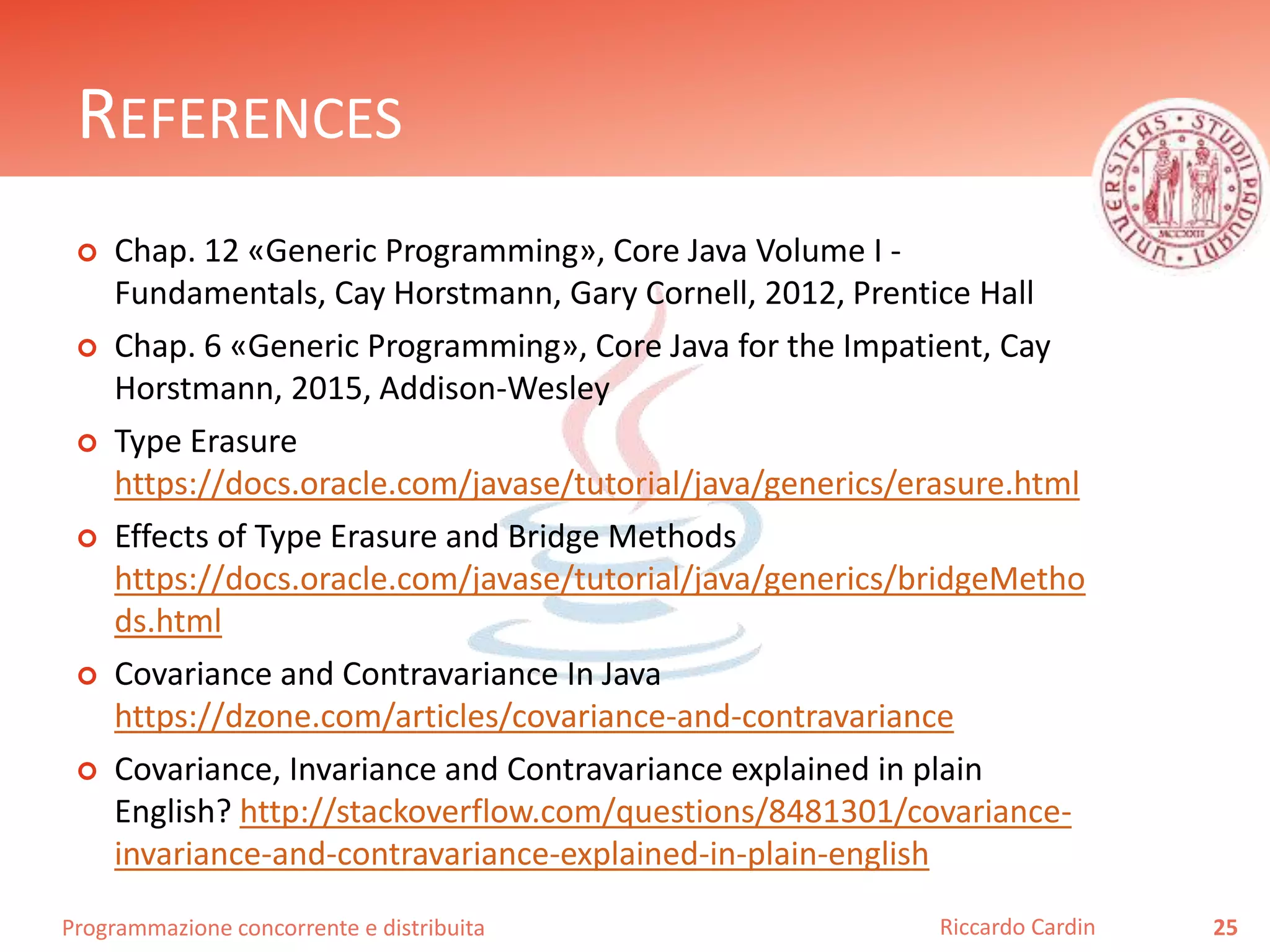The document discusses generic programming, specifically in the context of Java, covering topics such as generic classes, methods, type variables, and their limitations. It explains how generics enhance type safety and code readability by enabling type checks during compilation and introduces concepts like type erasure and wildcard types. Additionally, the document addresses the implications of generics with inheritance and practical examples of using generics.
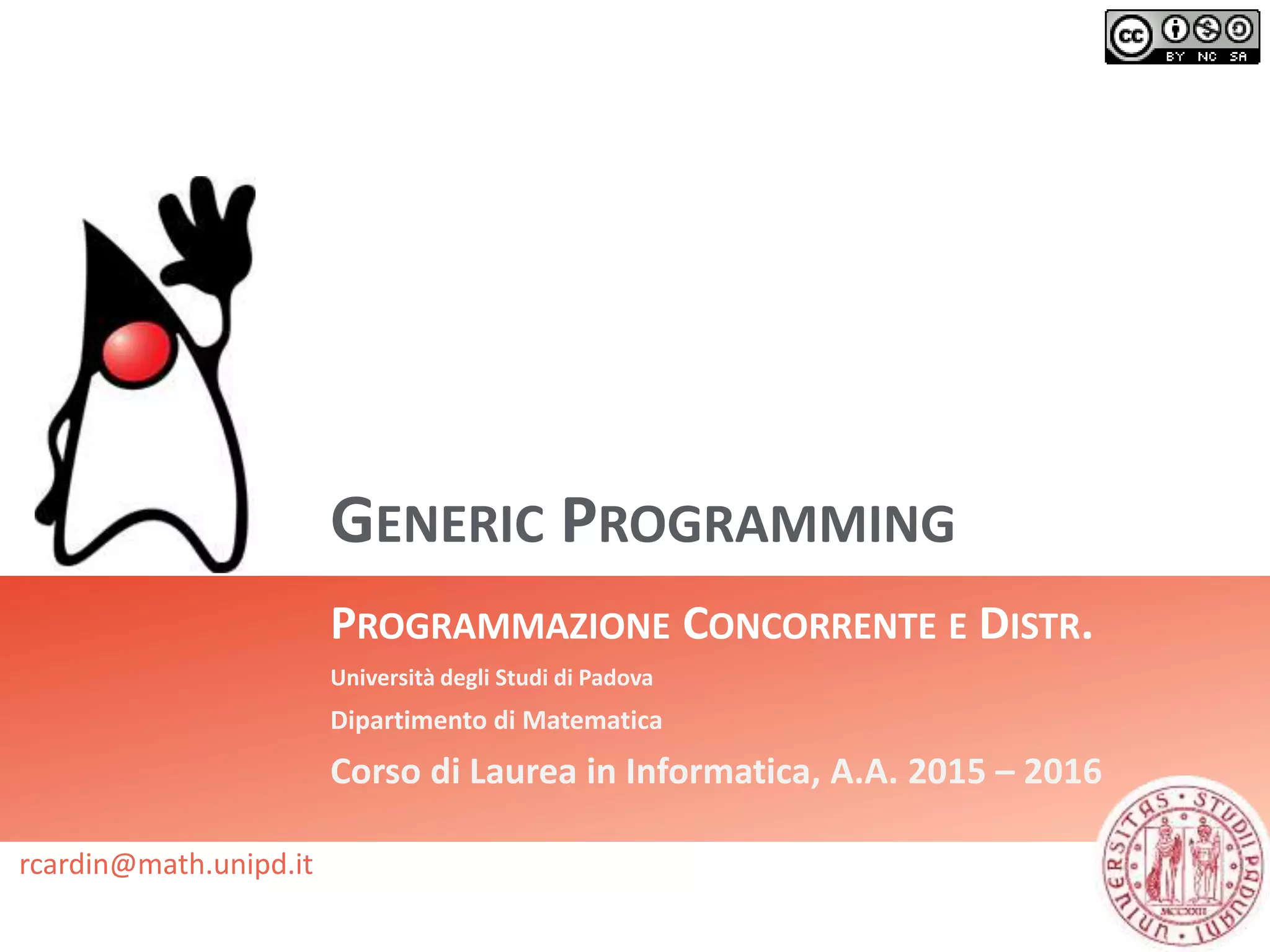
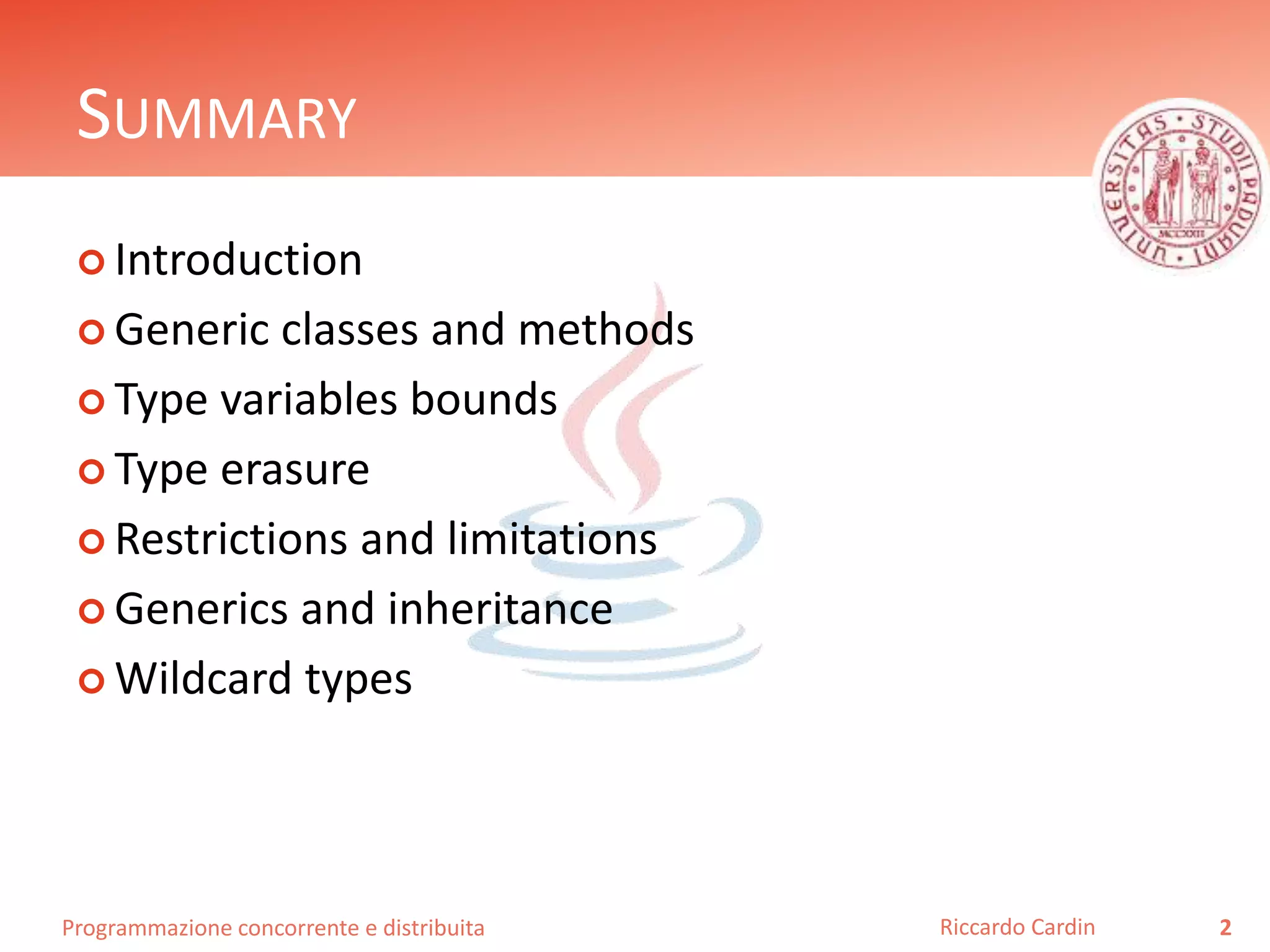
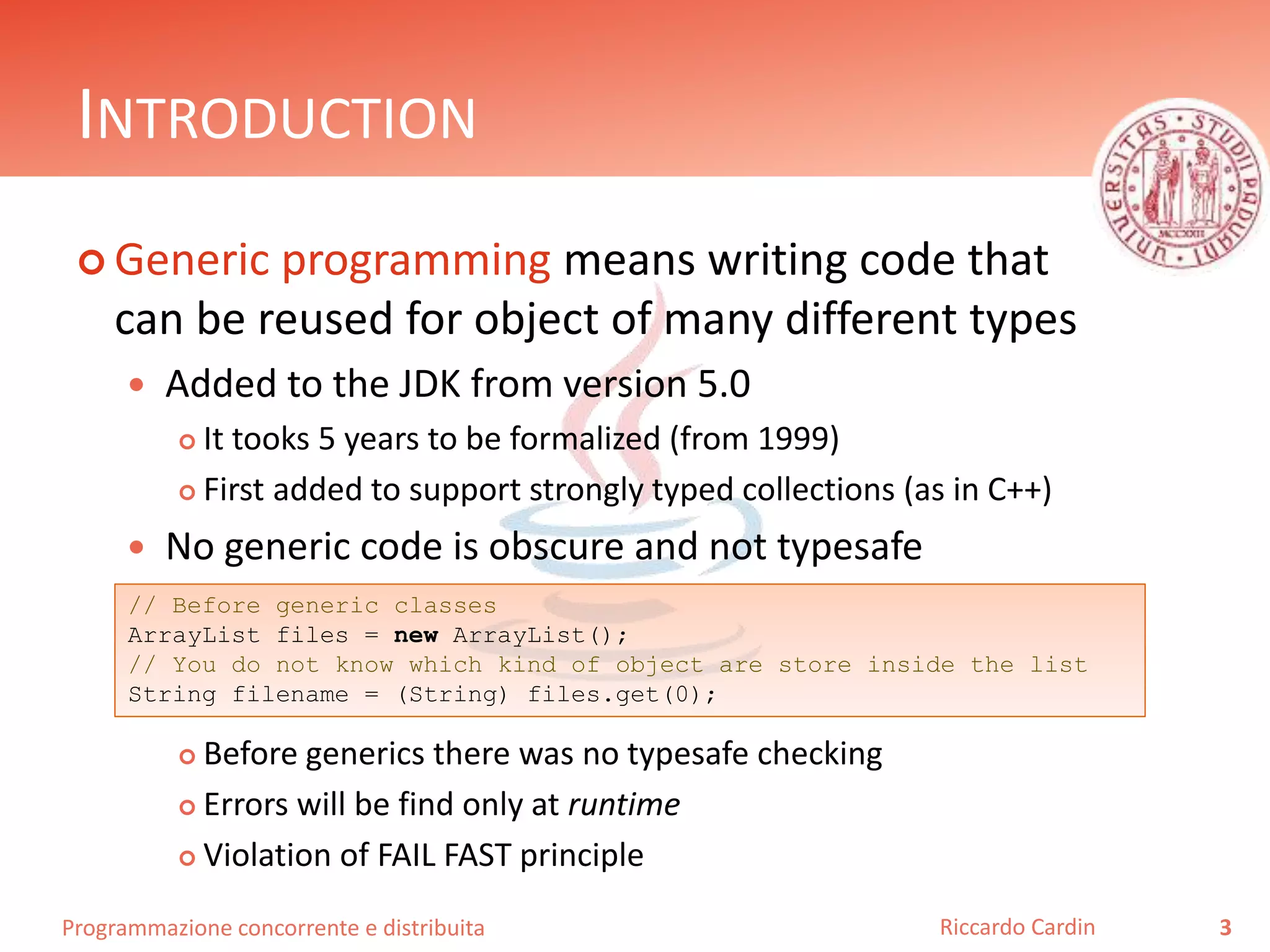
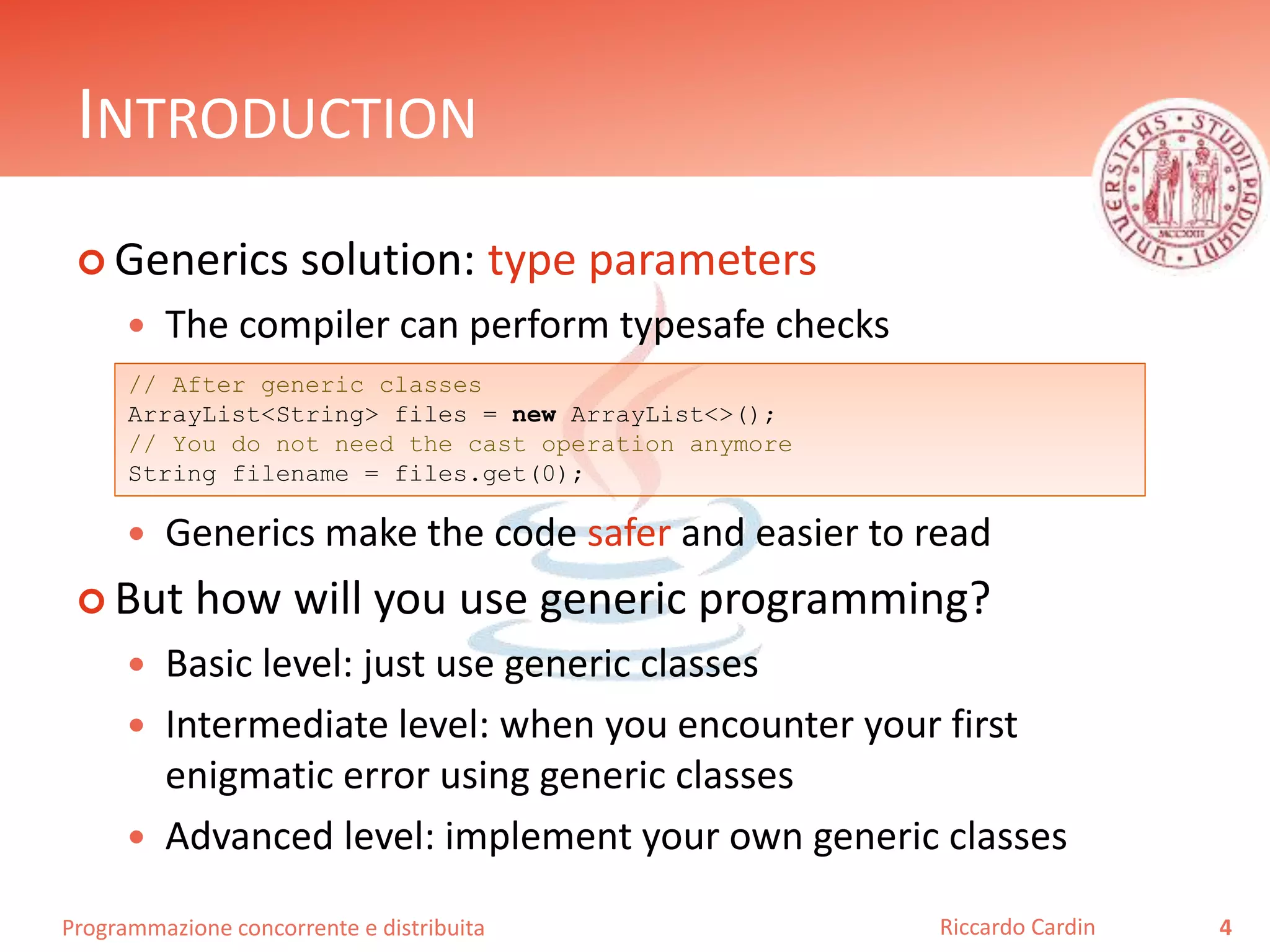
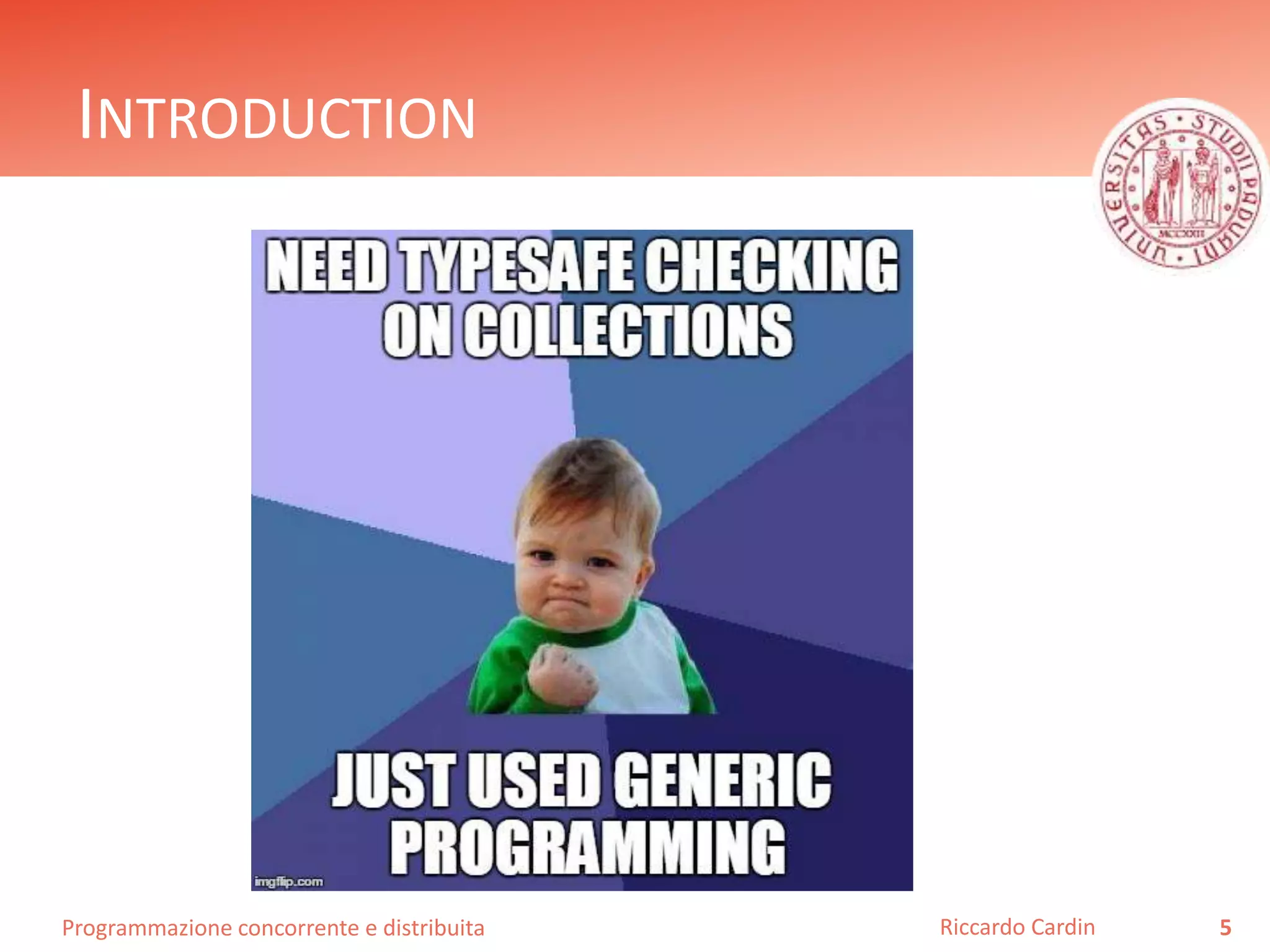
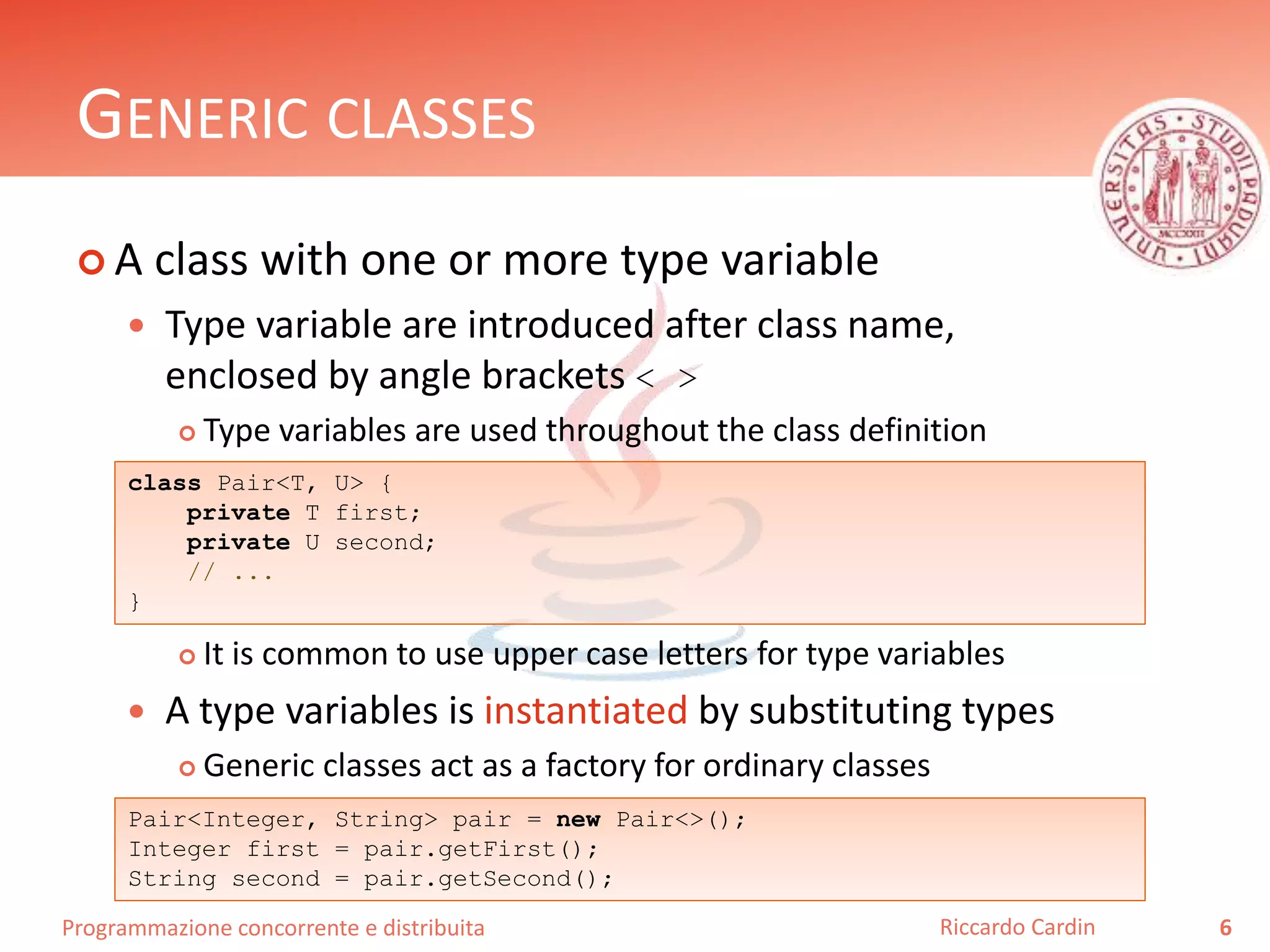
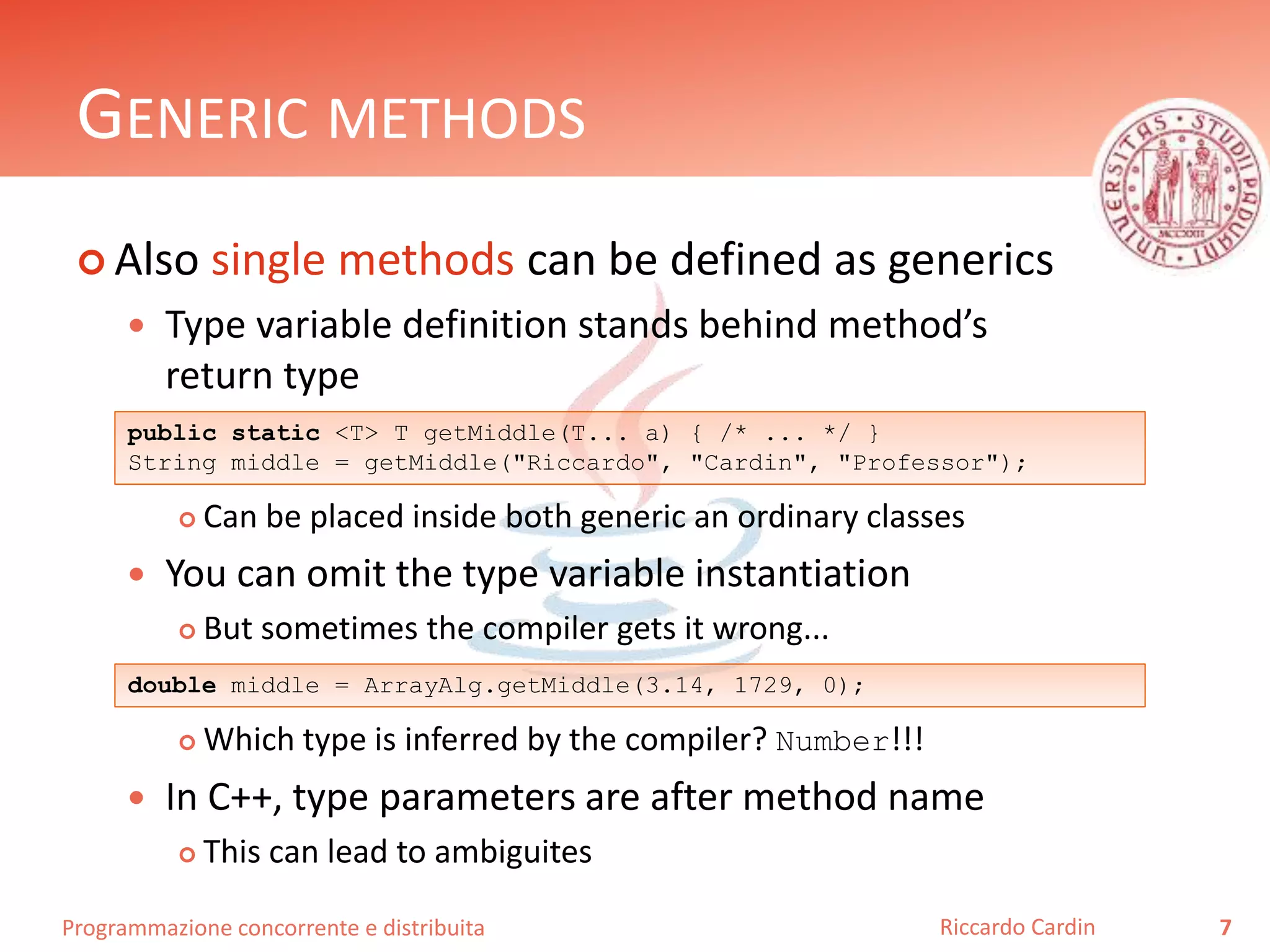
![Programmazione concorrente e distribuita
TYPE VARIABLES BOUNDS
Rescriction of a type variable to a class that is a
subtype of an another type
Use extends keyword both for classes and interfaces
It is possibile to use multiple bounds
At most one bound can be a class
8Riccardo Cardin
class ArrayAlg {
public static <T extends Comparable> T min(T[] a) {
if (a == null || a.length == 0) return null;
T smallest = a[0];
for (int i = 1; i < a.length; i++)
// We know for sure that compareTo is available
if (smallest.compareTo(a[i]) > 0) smallest = a[i];
return smallest;
}
}
T extends Comparable & Serializable](https://image.slidesharecdn.com/java-genericprogramming-151215213143/75/Java-Generic-programming-8-2048.jpg)
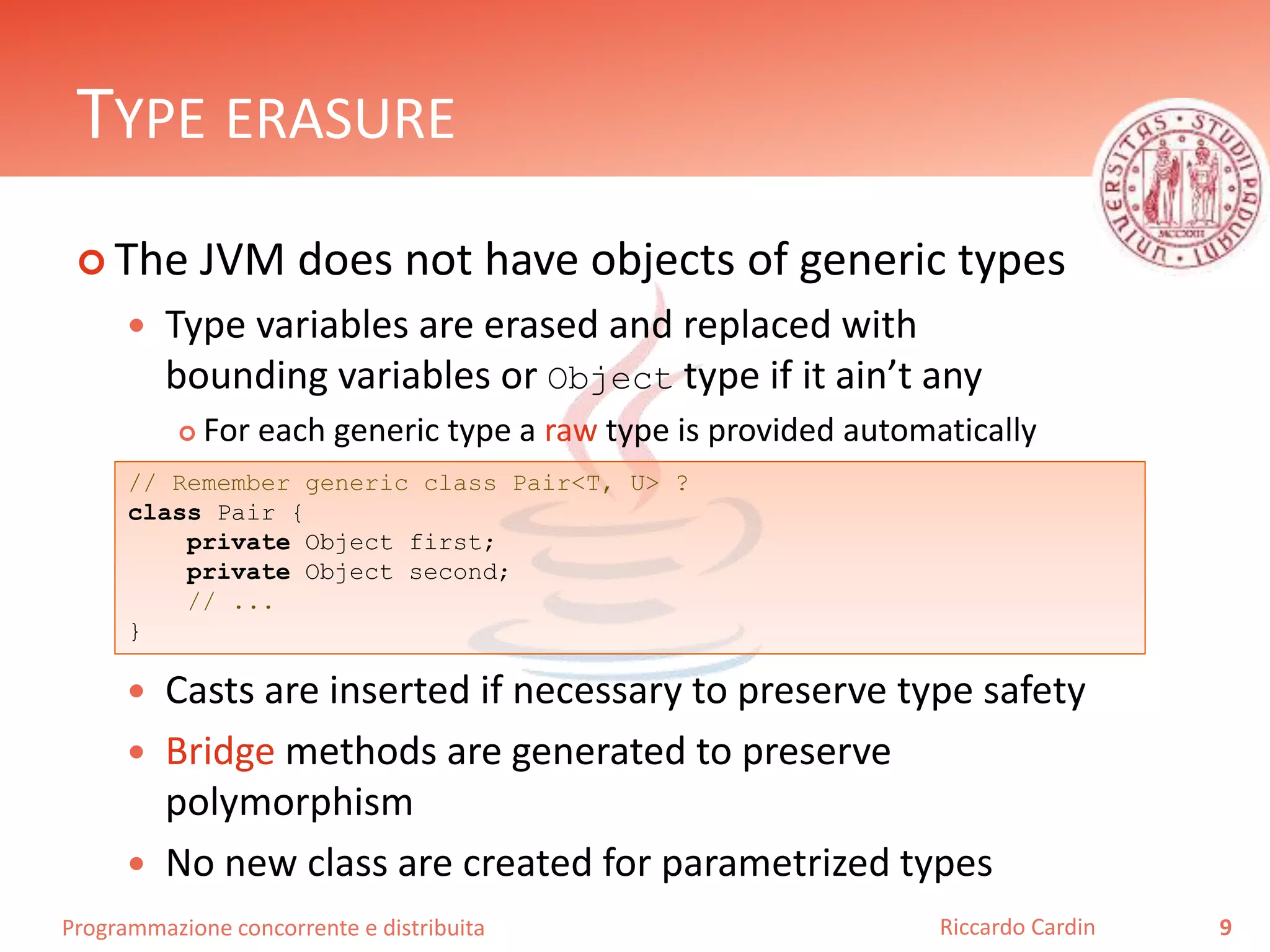
![Programmazione concorrente e distribuita
TYPE ERASURE
Translating generic expression
Compiler inserts casts when the return the return
type has been erased
Translating generic methods
A generic method is not a family of methods
This fact has a series of implications...
10Riccardo Cardin
Pair<Employee, Salary> buddies = /* ... */;
Employee buddy = buddies.getFirst();
// After type erasure will become
Pair buddies = /* ... */;
Employee buddy = (Employee) buddies.getFirst(); // Returns an Object
public static <T extends Comparable> T min(T[] a)
// becomes after type erasure
public static Comparable min(Comparable[] a)](https://image.slidesharecdn.com/java-genericprogramming-151215213143/75/Java-Generic-programming-10-2048.jpg)
